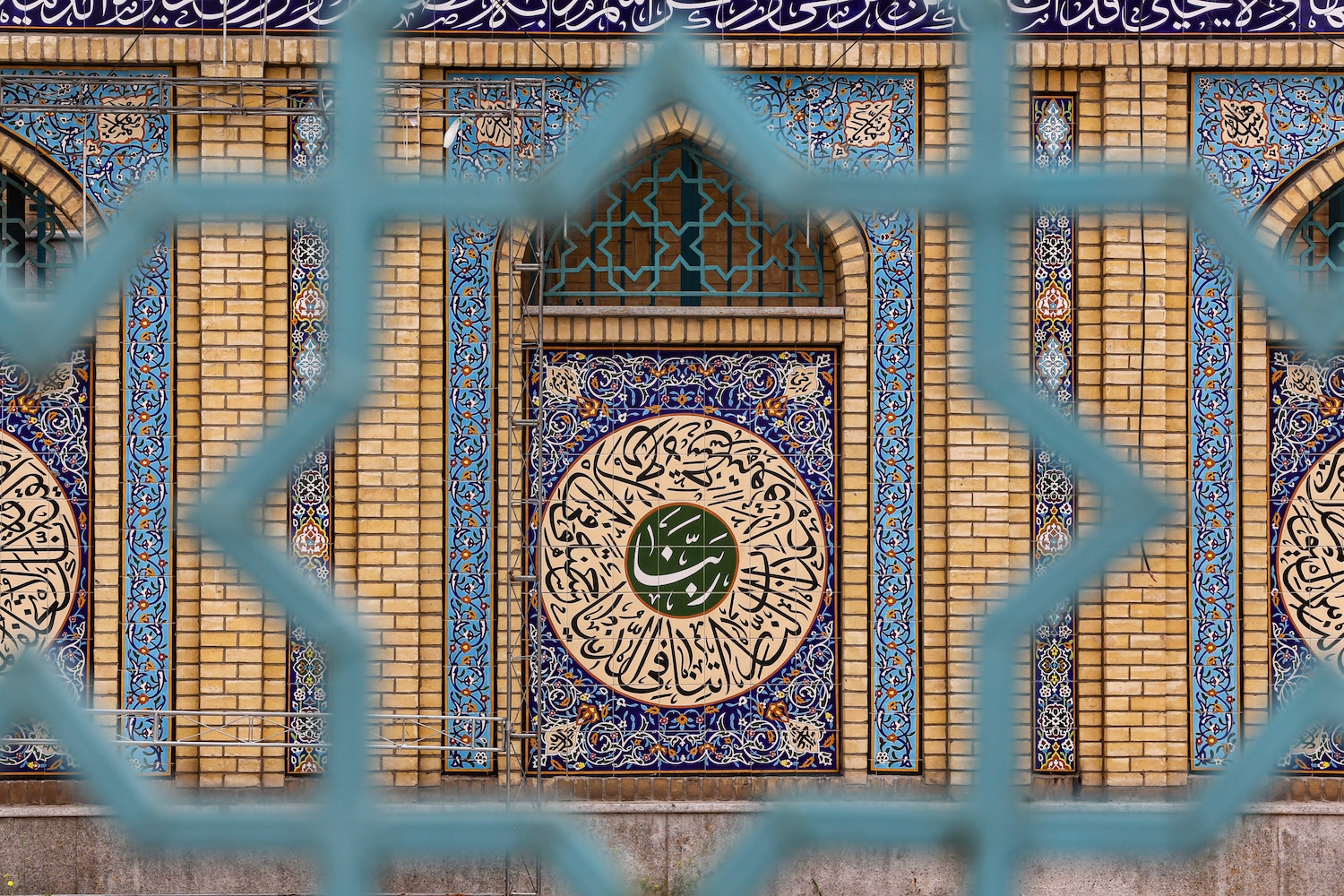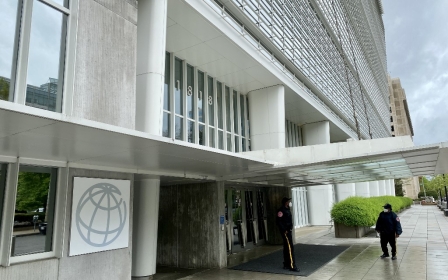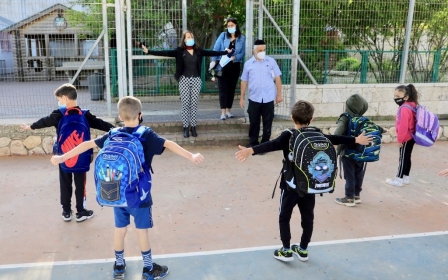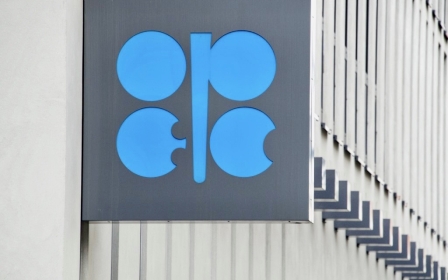Coronavirus: Middle East countries ease restrictions as infection rate slows

Countries across the Middle East are beginning to loosen lockdown measures imposed to tackle the coronavirus pandemic, as the region reports a slower rate of infection and embarks on a long road to economic and social recovery.
As of Monday, global coronavirus cases surpassed 3.5m and deaths neared a quarter of a million, according to a Reuters tally.
In the Middle East, little has been left untouched by the outbreak. For weeks, work, education and lifestyle have been put on hold, as citizens adapt to a “new normal” of social distancing and home confinement.
Furthermore, the economy of the Middle East and North Africa is expected see its biggest slump in four decades due to coronavirus and low oil prices, shrinking by 3.3 percent during 2020, according to a report by the International Monetary Fund (IMF) released in April.
But the gloomy outlook is starting to brighten a little in some parts of the region, where governments are cautiously pushing out roadmaps to get their countries back on track.
Is the worst over for Iran?
Iran, the hardest hit country in the region, has announced plans to reopen mosques and schools in “low-risk” areas, including towns that have been consistently free of the coronavirus.
President Hassan Rouhani said in a weekend televised meeting: “Mosques will reopen in 132 low-risk or ‘white cities’ and towns from Monday. Friday prayer sermons will resume in those areas as well.”
Iran’s health ministry has divided the country into white, yellow and red areas based on the number of infections and deaths.
Rouhani's announcement follows health ministry guidance that the trajectory of infections in the country had started a “gradual” downward trend.
While school and university closures were maintained and cultural and sports gatherings were still banned, Rouhani said the plan was for some schools to reopen from 16 May in low-risk areas.
Iran has already lifted a ban on intercity trips and malls, with large shopping centres resuming activities despite warnings by some health officials of a new wave of infections.
As of Sunday, the coronavirus death toll in Iran stood at 6,203, with a total number of diagnosed cases at 97,424, according to the health ministry.
Lebanon reopens restaurants
Even before the coronavirus outbreak, Lebanon was already facing its worst financial crisis in recent history, prompting anti-government protests that began last October and rattled the country’s hereditary political class.
In March, after the government defaulted on a $1.5bn debt payment, the cost of living rose sharply and the economy spluttered to a halt.
But Lebanon was thrown a lifeline in April when it secured $40m from the World Bank to fight the coronavirus.
The country has since adopted a five-step exit plan, with the first phase taking effect on 27 April, allowing some factories, government companies, delivery services and hotels to open.
On Monday, Lebanon moved into the the second phase of easing lockdown, allowing restaurants to operate at a 30 percent capacity, and hair salons, playgrounds and mechanics to open during the day.
The final phase, scheduled for 8 June, hopes to see the reopening of schools, public transportation, and recreational and cultural destinations.
Bring back the tourists
Egypt’s tourism sector earned $12.6bn in 2019, the highest figure in almost a decade. But the industry, which accounts for 12-15 percent of gross domestic product, has been crippled by the coronavirus crisis since March, after Egypt closed its airports to most traffic.
Now, the country has announced plans to allow hotels to reopen for domestic tourists, on condition that they operate at no more than 25 percent capacity until the end of May and implement a range of other health measures to guard against the disease, Reuters reported.
For hotels to resume operations they must have a clinic with a resident doctor, regularly screen temperatures and install disinfection equipment, Egypt's cabinet said in a statement on Sunday.
Guests must be registered online and workers have to undergo rapid coronavirus tests when entering resorts, while a hotel floor or small building must be assigned as a quarantine area for positive or suspected cases.
From 1 June, hotels will be allowed to work with a maximum 50 percent capacity, the cabinet said.
Oil is cheap
Oil, once one of the world’s most coveted commodities, has suffered a price collapse amid the coronavirus pandemic due to historically low demand, as cars and planes stay grounded for the foreseeable future.
On 20 April, the oil price crashed from $38 a barrel to $18, turning negative in the US for the first time on record.
In an attempt to soften the adverse effects of the low demand, the Organization of the Petroleum Exporting Countries (Opec), Russia and other oil-producing nations had agreed to cut output by a record amount, representing about 10 percent of global supply, to support oil prices amid the pandemic.
Algeria, which holds Opec’s rotating presidency this year, has repeatedly said it aimed to diversify away from oil and gas but has proved reluctant to open up an economy dominated by state industries.
Instead, the Algerian government decided to reduce the national budget by "50 percent" for this year, President Abdelmadjid Tebboune's office said in a statement.
Tebboune had ruled out approaching the IMF for a bailout, contending that "accumulating debt harms national sovereignty" when it is owed to foreign institutions.
He said he preferred to rely instead on domestic borrowing.
With less than 500 Covid-19 deaths reported in the country, Algeria has already begun easing confinement measures by shortening curfew in selected provinces and reopening some shops and restaurants.
Out of the six oil-rich Gulf Cooperation Council (GCC) economies, Bahrain and Oman are among the least fortunate, as their 2020 breakeven oil prices are substantially higher than their counterparts.
Although projections for Bahrain appear grim, there is less ambiguity surrounding its future, as the island nation received a $10bn stimulus package from Saudi Arabia, the UAE and Kuwait in 2018.
It is less predictable how Oman will absorb the erosion of its budget and the risks posed by Covid-19. Muscat’s exposure to China, the disruption in tourism, collapsing energy prices and cuts in oil output have wreaked havoc on a government dependent on oil and gas for 70 percent of its revenues.
Aside from domestic reforms and spending cuts, Oman’s options for raising external funds are limited.
Middle East Eye delivers independent and unrivalled coverage and analysis of the Middle East, North Africa and beyond. To learn more about republishing this content and the associated fees, please fill out this form. More about MEE can be found here.




